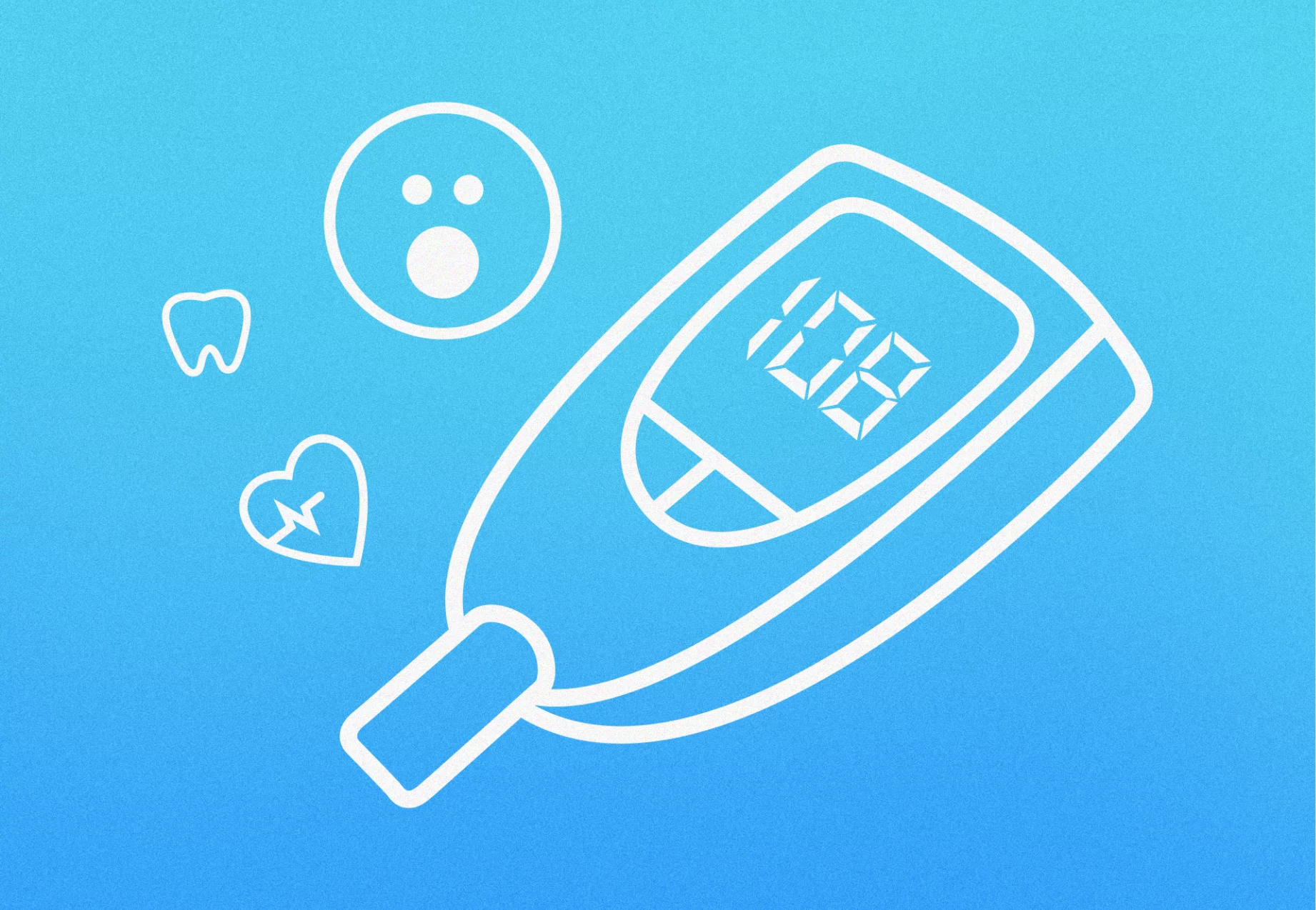High blood sugar isn't the only driver of diabetes. Keep an eye out for gum inflammation.
Featured Articles
Learn how dental hygiene can impact diabetes and how you can take control of your oral and overall health.
Chronic gum disease may cause blood sugar level to rise, which makes diabetes more difficult to manage.
Mayo Clinic, 2021

More Brushing, Less Diabetes

Tips on Managing Your Diabetes with Oral Health and More
Got questions?
Smile Generation-trusted dentists make understanding the Mouth-Body Connection simple. Call us at 1-800-SMILEGEN to get started.
Type 1 diabetes is caused by the body's inability to manufacture insulin. Insulin is required to extract glucose from the meals you eat. The glucose is converted into energy for the body to use. To live, a person with Type 1 diabetes must take insulin daily.
Type 2 diabetes is also the most frequent of the three forms. Type 2 diabetes is caused by the body's inability to manufacture or utilize insulin properly. To control their diabetes, people with Type 2 diabetes must take tablets or insulin.
Gestational diabetes is a kind of diabetes that develops in certain women during pregnancy. After the mother has delivered, it usually fades away on its own. If the mother has diabetes while pregnant, both the mother and the kid are more likely to have diabetes later.
Learn more in our blog article, "Tips on Managing Your Diabetes with Oral Health and More."
Diabetes can affect the amount of saliva produced. Many diabetic patients complain of dry mouth, which is a side effect of the disease. While the salivary glands in diabetic patients are working overtime, the volume of saliva produced in the mouth is significantly less than in similarly aged, healthy control patients. According to the National Institutes of Health, diabetic saliva has greater calcium levels and dramatically lower magnesium and zinc levels, which contributes to diabetes and affects healing time and mouth infections.
Learn more in our blog article, "Expect More From Your Spit: The Slobbery Link Between Your Saliva and Diabetes."
Gum disease and diabetes are bidirectional, which means they go in both directions. Your body is a system, which means that whatever affects one part of it will influence the rest. So, while research has yet to demonstrate a causative link, gum disease can affect your type 2 diabetes.
The mouth is the body's doorway. Your oral health is inextricably linked to your overall health, especially if you have diabetes. If you have plaque and bacteria in your mouth due to gum disease, it will spread throughout your body. When the infection from your gum disease spreads and settles someplace else, it might lead to the development of other chronic illnesses, such as diabetes.
Learn more in our blog article, "Expect More From Your Spit: The Slobbery Link Between Your Saliva and Diabetes."
Blood sugar and insulin balance impact many various regions of the body, including oral health. Diabetes has long been thought to harm oral health. Still, a recent study suggests that there may be a link between good dental hygiene habits and a reduced or increased risk of diabetes.
Learn more in our blog article, "More Brushing, Less Diabetes."











